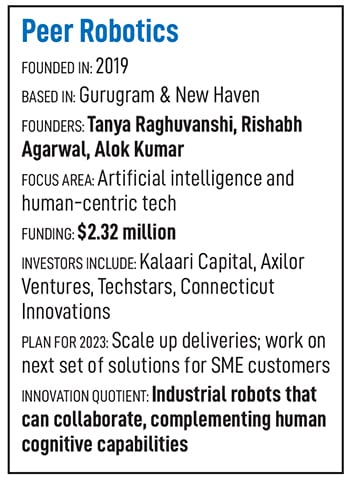Peer Robotics: Making robots doing what you want
Most robots are programmed to do a particular task and teaching it new tasks often requires a map application or more. Peer Robotics' robots can be given force-feedback to change its direction and mak


Tanya Raghuvanshi and her IIT-Delhi junior Rishabh Agarwal started Peer Robotics in 2019 with the aim of making industrial robots that were much more collaborative. This was triggered by their observation that most industrial robots they saw in the market did monotonous tasks—like going from point A to B—and changes had to be programmed into them.
“There was no level of interaction between them and the humans in their environment," Raghuvanshi explains. Teaching the robots would involve laying down a magnetic tape or using a map application and so on. “With our platform, someone can grab the robot, provide a force-feedback, which the robot understands, and change its direction," Agarwal says.
Peer Robotics has raised $2.32 million from investors, including Kalaari Capital and Axilor Ventures. The plan for 2023 is to “scale up" deliveries and production, Raghuvanshi says. And for her personally, the plan is dive into “more research, more ideas and more features".
First Published: Feb 16, 2023, 12:19
Subscribe Now